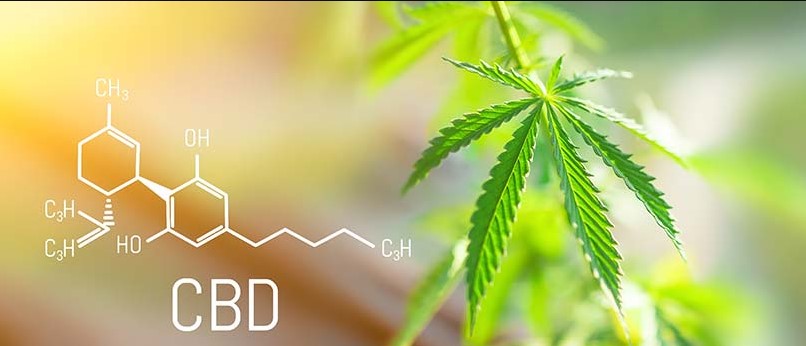Firstly CBD (Cannabidiol) is a non-psychoactive cannabinoid or compound found in Cannabis. It’s the second most prevalent compound (behind THC) in Cannabis and is quickly on its way to becoming the most well-studied. THC & CBD interact with special receptors in our body called cannabinoid receptors. CBD is one of over 60 compounds found in cannabis that belong to a class of ingredients called cannabinoids.
CBD is the major nonpsychoactive component of Cannabis sativa. According to a 2019 study published in the British Journal of Clinical Pharmacology, CBD benefits including acting in some experimental models as an anti-inflammatory, anticonvulsant, antioxidant, antiemetic, anxiolytic and antipsychotic agent, and is, therefore, a potential medicine for the treatment of neuroinflammation, epilepsy, oxidative injury, vomiting and nausea, anxiety and schizophrenia.

Proven Benefits of CBD
Scientists are rapidly discovering more and more about the rather amazing abilities of the cannabinoids found in the cannabis plant. Most of them have shown therapeutic value, as have the terpenes, which give the plant its distinct odours. There are over 125 terpenes and over 80 cannabinoids in cannabis and each strain has its own unique blend that create its distinct effects.
Relieves Pain and Inflammation
Evidence suggests that cannabinoids may prove useful in pain modulation by inhibiting neuronal transmission in pain pathways. A 2019 study published in the Journal of Experimental Medicine found that CBD significantly suppressed chronic inflammatory and neuropathic pain in rodents without causing analgesic tolerance. Researchers suggest that CBD and other nonpsychoactive components of marijuana may represent a novel class of therapeutic agents for the treatment of chronic pain
Antipsychotic Effects
Antipsychotic EffectsResearch shows that CBD benefits include producing antipsychotic effects. It appears to have a pharmacological profile similar to that of atypical antipsychotic drugs as seen using behavioural and neurochemical techniques in animal studies. Additionally, studies show that CBD prevents human experimental psychosis and is effective in open case reports and clinical trials in patients with schizophrenia. You Can Buy Cbd Online.
Reduces Anxiety
Studies using animal models of anxiety and involving healthy volunteers clearly suggest an anxiolytic-like effect of CBD. Cannabidiol has shown to reduce anxiety in patients with social anxiety disorder and researchers suggest that it may also be effective for panic disorder, obsessive-compulsive disorder, social anxiety disorder and post-traumatic stress disorder.
Helps to Fight Cancer
Several scientific reports demonstrate that CBD benefits include possessing antiproliferative, pro-apoptotic effects that inhibit cancer cell migration, adhesion and invasion. A 2019 study published in the Journal of Pharmacology and Experimental Therapeutics found for the first time that CBD potently and selectively inhibited the growth of different breast tumour cell lines and exhibited significantly less potency in non-cancer cells.
Relieves Nausea
Cannabis has been used for centuries for the suppression of nausea and vomiting. Research has revealed that among more than 80 cannabinoid compounds found in marijuana, both the intoxicant THC and the non-intoxicant CBD helps to get rid of nausea and vomiting in animal studies. A 2019 study published in the British Journal of Pharmacology found that CBD benefits including possessing anti-nausea and antiemetic effects when it was administered to rats.
Treats Seizures and Other Neurological Disorders
A 2019 survey conducted by researchers at Stanford University was presented to parents belonging to a Facebook group dedicated to sharing information about the use of cannabidiol-enriched cannabis to treat their child’s seizures. Nineteen responses met the inclusion criteria for the study: a diagnosis of epilepsy and the current use of CBD-enriched cannabis. The average number of anti-epileptic drugs tried before using CBD cannabis was 12. Sixteen (84 percent) of the 19 parents reported a reduction in their child’s seizure frequency while taking CBD cannabis. Of these, two (11 percent) reported complete seizure freedom, eight (42 percent) reported a greater than 80 percent reduction in seizure frequency, and six (32 percent) reported a 25–60 percent seizure reduction. Other beneficial effects included increased alertness, better mood and improved sleep; while side effects included drowsiness and fatigue.
